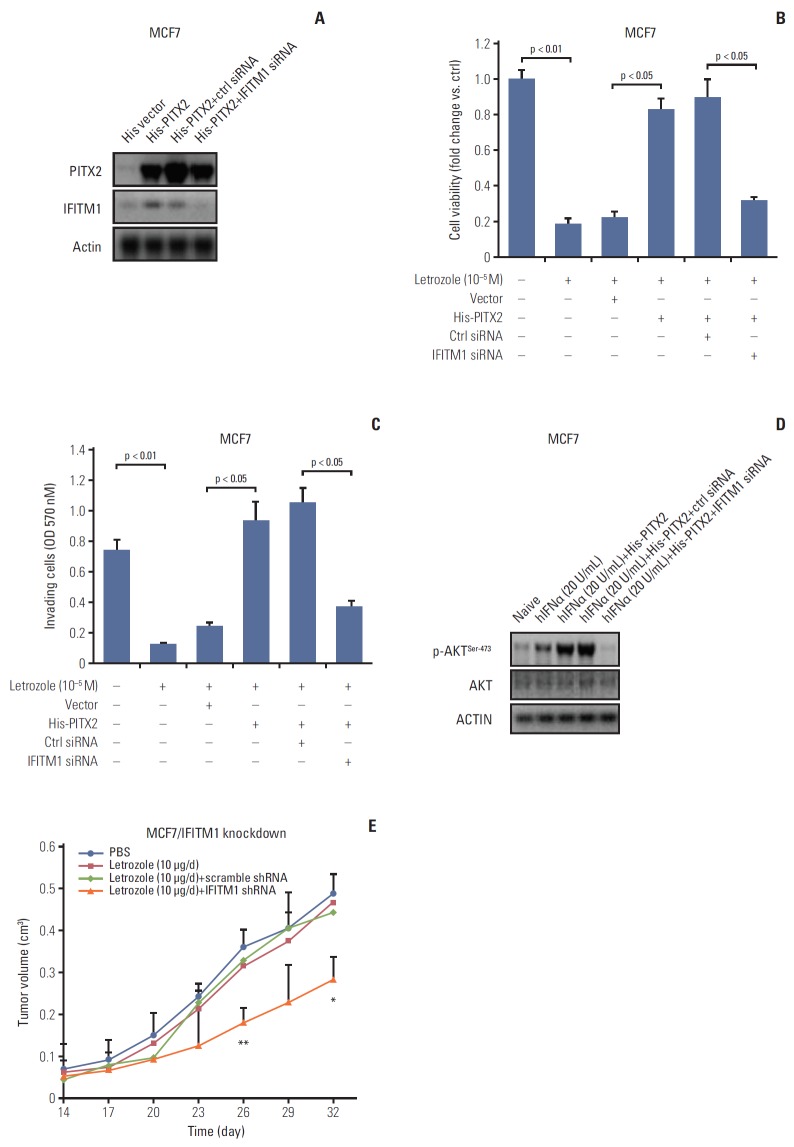Fig. 6.
Transient knockdown of interferon-inducible transmembrane protein 1 (IFITM1) abolishes paired-like homeodomain transcription factor 2 (PITX2)‒overexpression induced letrozole-resistance. (A) MCF7/LR/His-PITX2 cells were transiently transfected with IFITM1 siRNA or Ctrl siRNA. Forty-eight hours later, cells were harvested and subjected to Western blotting analysis of PITX2 and IFITM1 levels. After a 3-day culture and a following overnight starvation, the breast cancer (BCa) cells with different transfections were treated with 10–5 M of letrozole, along with 25 nM of androstenedione, for another 4 days. Viable cell numbers were then determined using trypan blue staining (B) (fold change was determined for each treatment relative to the untreated control cells) and cell invasiveness was determined using a colorimetric kit at 570 nm (C). The results were presented as the mean±standard error of mean of the triplicate samples. (D) BCa cells with different transfections were challenged with 20 U/mL of recombinant hIFNα protein for 24 hours, followed by Western blotting analysis of p-AKTSer-473 and AKT expression levels. (E) Tumor xenograft assay, as described above, was carried out to evaluate the effects of IFITM1 inhibition on in vivo letrozole sensitivity. *p < 0.05 and **p < 0.01 when comparing letrozole (10 μg/day)+scramble shRNA to letrozole (10 μg/day) +IFITM1 shRNA.

